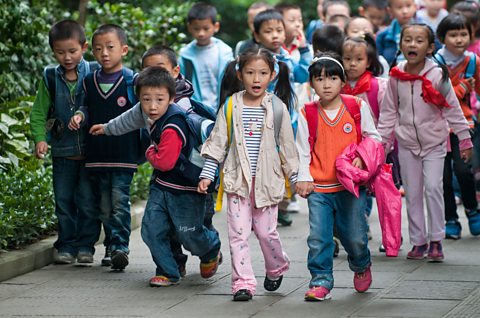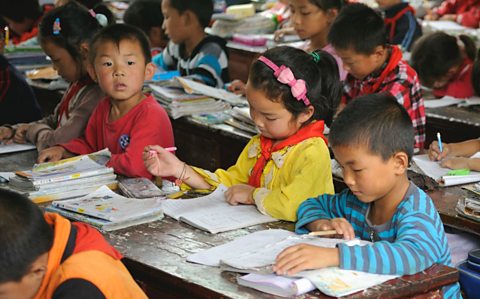Children's rights in China
Almost 350 million children live in China. In 1992, China agreed to the UNCRCUnited Nations Convention on the Rights of the Child, which means all those Chinese children should have their rights respected.
The People's Republic of China was founded in 1949. There is only one political party - the Communist Party of China.
China is not a democracyA type of government where people govern themselves or elect representatives to govern for them. so many human rights are ignored.
Living in a non-democratic country means:
- people don’t get to choose their leaders
- people can't criticise the government when they do something they don’t like
China is such a large country that children in some parts have different experiences growing up to children in other parts. Children who live in a city will have a very different life to children growing up in the countryside.

Education

The right to education is supported by China providing free education for all children and making it compulsory. All children must attend school.
However some schools (especially in the countryside) are poorer than others, with fewer teachers and less money for textbooks and equipment.
Freedom of speech
Chinese law does give people the right to free speech but in reality this is very different from what we experience in Scotland.
- The internet is censored – this means parts of it are blocked or changed.
- You cannot use social media in the same way.
- If you criticise the government you can get in trouble.
This means Chinese children can’t experience their right to be heard if they wanted to speak out about their school or other issues.
These examples show that although children in China have the same rights as we do in Scotland, their experience is very different.
China is a secretive country which means we don’t always know what is going on. This makes it difficult to always understand what children’s experiences are really like and if their rights are being respected properly or not. The United Nations tries to investigate this but isn’t always able to.